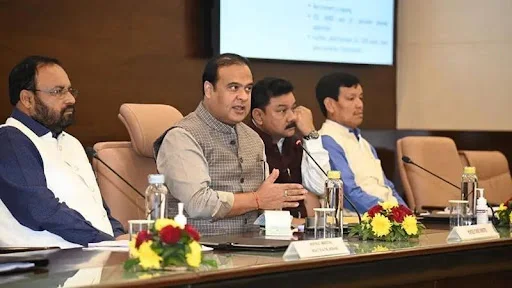Guwahati — The Assam Legislative Assembly has passed a landmark bill mandating the registration of all Muslim marriages and divorces in the state, a move aimed at ensuring legal recognition and safeguarding the rights of women in the Muslim community. The bill, known as the Assam Muslim Marriages and Divorces Registration Bill, 2024, was passed on Friday with majority support amid intense debates and discussions in the assembly.
The new legislation requires all Muslim marriages and divorces to be registered with a designated government authority, providing a legal framework that aligns with the personal laws governing the Muslim community. The bill seeks to bring greater transparency and accountability to marital practices and protect women from unjust practices, such as unregistered divorces or denial of maintenance.
Under the bill, both Nikah (marriage) and Talaq (divorce) must be registered within 30 days with a government-appointed registrar. The law applies to all Muslims residing in Assam, regardless of whether the marriage was solemnized within or outside the state. Failure to register could result in penalties, including fines and possible legal consequences.
State Minister for Social Welfare, Ajanta Neog, who introduced the bill, said, “This legislation is a step toward empowering Muslim women by ensuring their marriages and divorces are legally recognized. It will help in addressing grievances related to maintenance, inheritance, and other rights guaranteed under the law.”
The bill also includes provisions for maintaining a central digital registry for easy access to records, which can be used to settle legal disputes and claims related to marriage, divorce, inheritance, and child custody.
Supporters of the bill argue that it will help protect women from practices such as instant triple talaq, which the Supreme Court of India declared unconstitutional in 2017. Registration will ensure that divorces are carried out according to due process, reducing the possibility of arbitrary or unilateral dissolution of marriages.
“The registration process will bring clarity and legal recognition to marital relationships within the Muslim community, reducing the exploitation of women who often face challenges in proving the validity of their marriage or divorce,” said Hafiz Ahmed, a legal expert on personal laws.
However, the bill has faced criticism from some quarters, with opponents arguing that it could interfere with personal laws and the community's religious practices. Critics have called for a more consultative approach, emphasizing the need to respect cultural and religious sensitivities.
The bill has sparked mixed reactions across Assam. Several women’s rights organizations have welcomed the move, calling it a progressive step toward gender equality and social justice. “This bill is a much-needed reform that will provide legal recognition to Muslim marriages and divorces, thereby protecting women's rights,” said Zakia Sultana, an activist with the All Assam Muslim Women’s Forum.
However, some Muslim leaders and clerics have expressed concerns, suggesting that the government should have consulted more extensively with community leaders before passing the bill. “While we support efforts to safeguard women’s rights, any law affecting personal practices should be carefully deliberated with all stakeholders,” said Maulana Fakhrul Islam, a prominent cleric in Assam.
The state government has assured that the bill respects the personal laws of the Muslim community and is in line with Article 25 of the Indian Constitution, which guarantees the right to freedom of religion. The government also plans to conduct awareness campaigns and workshops to educate people about the new law and its benefits.
Assam Chief Minister Himanta Biswa Sarma emphasized that the bill is not intended to interfere with religious practices but to bring about social reforms. “We are committed to the welfare of all communities in Assam. This legislation will help ensure that Muslim women have the legal protection they deserve, without infringing upon religious freedoms,” he said.
The bill now awaits the Governor's assent to become law. Once enacted, Assam will become the first state in India to mandate the registration of Muslim marriages and divorces, setting a precedent for other states considering similar measures.
As Assam prepares for the implementation of the new law, it faces challenges such as setting up an efficient registration system, training officials, and ensuring widespread public awareness. The success of the bill will depend largely on its effective execution and the cooperation of all stakeholders in the community.
The move comes amid broader national discussions on reforms in personal laws, sparking debates about balancing religious freedoms with the need for legal recognition and gender justice.

